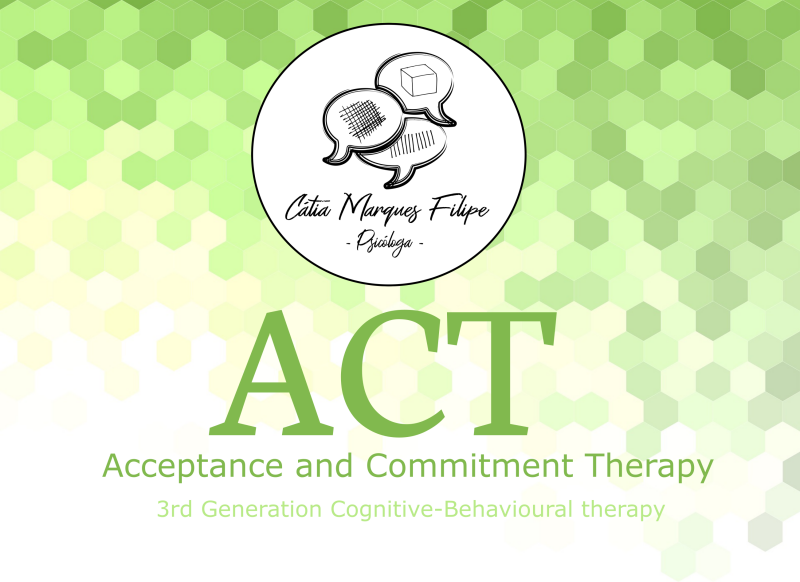
Acceptance and Commitment Therapy is part of the 3rd generation of Cognitive-Behavioural therapy, and can be applied in different settings: Clinical, Educational, Individual and Group therapy.
The Association for Contextual and Behavioural Science (ACBS in contextualscience.org) summarizes the core features of ACT:
Acceptance and Commitment Therapy (ACT) has developed as a behavioral intervention to help people learn strategies to live life more in the present, more focused on important values and goals, and less focused on painful thoughts, feelings and experiences.
ACT teaches people how to:
- Engage with and overcome painful thoughts and feelings through acceptance and mindfulness techniques;
- Develop self-compassion and flexibility;
- Build life-enhancing patterns of behavior.
ACT is not about overcoming pain or fighting emotions; it's about embracing life and feeling everything it has to offer. It offers a way out of suffering by choosing to live a life based on what matters most. ACT has developed within a scientific tradition, and there continues to be a thriving research community that examines the basic science underlying ACT and the effectiveness of applying ACT techniques to numerous life problems such as anxiety, depression, PTSD, substance abuse, chronic pain, psychosis, eating problems, and weight management, just to name a few.
I am currently developing ACT in consult with teens and adults, but also with children. The ACT Kidflex model (Tamar, 2022) allows to adjust the model to young ages. Note that ACT therapy should be developed only by trained psychologists.
If you need more information or want to book and appointment, please contact me! I'll be glad to help you.
Adicionar comentário
Comentários